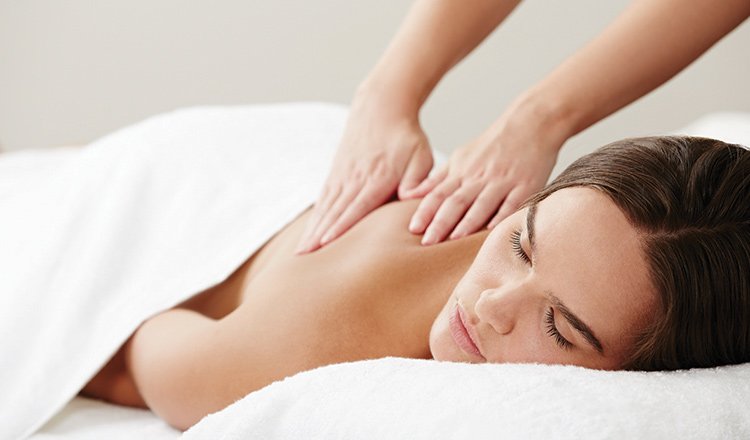While the festive season can be a wonderful time of light and love, it is also a time where the pressures of work and Christmas shopping combine with the pleasures of Christmas parties, high fat and sugar laden foods and perhaps a little too much Christmas spirit! As we revel in the delights that Christmas brings, we sometimes don’t realise the impact our choices have on our bodies…and of course our skin.
According to Endota’s skincare expert, Cara Doncovio “most of us are aware that some of our lifestyle choices can have a damaging effect on our bodies and generally it’s our skin that can bear the brunt of a hectic and stressful festive season. From smoking, to eating a diet high in sugar and fat, drinking alcohol or suffering from fatigue and stress – all of these lifestyle choices can take a toll on our skin – we tend to forget that the skin is actually the body’s largest organ.
- Stress
- Food
- Alcohol
- Lack of sleep

1. Stress
Most of us are aware that stress has an effect on our skin; but many of us are unaware of the extent of these effects and how much they can play a role with regards to premature ageing.
Fine Lines & Wrinkles – It may seem obvious but constant muscle tension (like frowning) can lead to permanent wrinkling. Facial expressions mostly used when we are stressed can cause deep lines (like crow’s feet or frown lines), often lasting beyond the stressful period.
What you can do
Get to the root of the problem; take a look at what the triggers are which are causing you to be stressed and then explore ways in which you can address these triggers, as opposed to attempting to only remedy the skin which is affected. Dr Lilly Thomas says, “The most effective way of reducing your stress levels is to solely dedicate time to relax in a ‘removed’ environment; I often recommend a relaxation massage at your local day spa as during a treatment is one of the only times you are asked to turn off your phone. Spas are an oasis of calm and the dramatic reduction in the levels of cortisol is generally a sign of a massage’s effectiveness.”
Dehydration – When stressed, our bodies automatically increase the production levels of the cortisol hormone (which is also known as the ‘stress hormone’). Research suggests that cortisol literally gets under the skin, damaging the skin’s ability to hold on to water, which can lead to dryness and dehydration, one of the key causes of fine lines and wrinkles; a lack of moisture can also diminish the skin’s natural luminosity and ‘glow’.
What you can do
The good news is that if you recognise the signs of stress and the areas of your skin which are affected as the result of stress, you can reverse the effects quickly; for example, if you notice your skin is dry and lacks moisture, use a hydrating serum which specialises in helping the skin absorb moisture. Generally, look for products which contain Hyaluronic Acid, as it has the ability to retain 1000 times its own weight in hydration. By helping your skin hold on to moisture and maintain these levels, this will help to improve elasticity and boost hydration. Another tip is to wash your face with luke warm water, not hot water as the higher temperature can strip the skin’s natural ‘good’ oils; I also recommend applying moisturiser or serum when your skin is slightly damp, to help further lock in moisture.”
Damaging Collagen Levels – An increase in cortisol can cause damage to the fibroblast (a cell which looks after the maintenance of our collagen), resulting in the depletion of collagen and elastin. Collagen and elastin help keep skin firm, elastic and plump.
What you can do
Whilst the body produces its own collagen, the production of this protein slows down as we age or as we experience heightened stress, the lower levels of collagen in our skin as we grow older, results in the skin beginning to lose its firmness and elasticity. You can improve the appearance of fine lines and wrinkles by using a collagen serum, as this will help to increase skin resilience and prompt maintenance of the collagen
Slowing the skin’s healing – Other effects may be more subtle, such as impairing the skin’s moisture barrier or slowing skin’s healing, which can make the skin sensitive and more reactive leading to blemishes or redness”
What you can do
Look for products which are suitable for sensitive skin – it may seem like a simple recommendation but using a product that is too strong for sensitive skin could cause a flare up – definitely not something you want the night before your Christmas party!

2. Food
We all know that eating a diet high in sugar isn’t good for our skin, but why is that so?
Damaging Collagen Levels – Sugar has been known to damage the collagen and elastin in your skin. Sugar attaches to the collagen through a process called glycation and when this usually springy and resilient collagen and elastin becomes dry, brittle and inflexible, resulting in a higher possibility that your skin is more likely to sag and develop wrinkles.
What you can do
- Increase your collagen production: This Christmas your collagen and elastin production levels are going to need all the help they can get. A fabulous natural ingredient which helps look after collagen is extract from a type of Aloe Vera plant called Aloe Vera Barbedensis; the extract from the plant is full of the necessary co-factors, i.e. the vitamins and minerals, that are needed to stimulate the dermal fibroblast (which is a cell which looks after the maintenance of our collagen)
- Reduce your sugar intake: Be savvy and check food labels, where possible opt for sugar free alternatives or simply try to reduce your intake of sweetened food.
3. Drink
Christmas – tis the season to be merry! However maybe the following effects of excessive alcohol consumption may make you rethink that extra tipple!
Blushing Red – Drinking alcohol also causes facial blood vessels to dilate, and repeated overindulgence can cause the vessels to expand and widen permanently allowing more blood to flow through our skin, causing redness
What you can do
It’s fairly simple – where possible limit your alcoholic intake and drink lots of clean filtered water! Remember to pace yourself, Christmas is a time of celebration so there are most probably going to be lots of occasions and functions.
Dehydration – I’m sure many of us can appreciate the feeling of dehydration the morning after a heavy night drinking. But it’s not just a lack of liquids which our bodies are struggling with the morning after; the effect of alcohol on the skin has a similar effect to the rest of your body. Alcohol extracts the good hydration, and leaves the bad which commonly comes in the form of dryness, bloating and redness. Drinking too much is also thought to deprive the skin of vital vitamins and nutrients; specifically Vitamin A, which is essential for cell renewal and turnover, which is why sometimes the skin can lose its glow.
What you can do
The water you drink serves as a type of internal moisturizer for your skin, which is why staying thoroughly hydrated can help to smooth out wrinkles, and make your skin appear brighter and younger. Alcohol can have the opposite effect, depleting the skin of vital nutrients and making your skin appear dull, reducing luminosity. It is therefore key to remember to stay hydrated and drink plenty of water – try and drink a glass of water between every alcoholic drink you have and this will improve your chances of staying hydrated. There are a number of natural ingredients you can look out for when trying to rehydrate the skin; for example, macadamia oil is extremely hydrating and penetrates the skin brilliantly. You might also use shea butter, lilly pilly and rosehip and myrrh oil as they are packed full of antioxidants. As increased blood flow can leave the skin drier, it’s a good idea to maintaining a consistent skincare routine which includes cleansing, toning but most importantly moisturizing day and night. Opt for a regenerating night cream for the night time and a hydrating, but SPF moisturiser for the daytime.
4. A lack of sleep
Damaging the skin’s regeneration – If you are consistently not getting enough sleep it can affect your skin’s regeneration function, resulting in dullness, fatigue, under-eye circles and bags and bloodshot eyes. It is important to remember that the skin around the eyes is where it is the thinnest on the entire body, with just 10 layers – it is for this reason you’re eyes are extremely sensitive and often the first giveaway if you’ve had a late one the night before!
What you can do
If you suffer from puffy eyes, use cucumber slices as mini ice packs on the eyes; they constrict the blood and lymph vessels that bring fluid to the area – there is a genuine reason behind this! Similarly to using cucumber, there a number of healing properties associated with natural ingredients, for example pea extract has been known to stimulate collagen which improves skin elasticity and firmness. Green tea extract is also packed with antioxidants which help to shield against environmental damage and fortify against future damage.
Sleep with your head slightly elevated to prevent fluid from pooling around the eye area.
These tips and advice are brought to you by skincare expert Cara Doncovio & Dr Lily Tomas from edota spa.
How are you looking after your skin this festive season? Tell us your tips below…

















